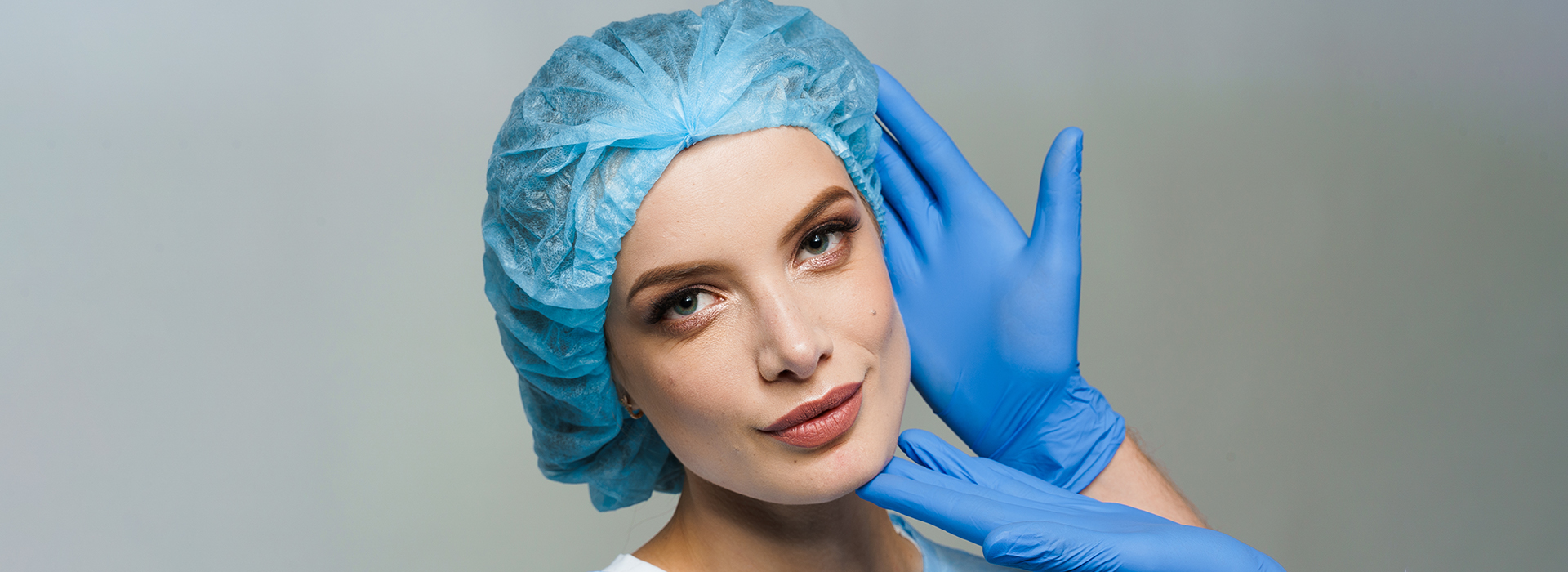Working Time
- 24/7 (General inquiry)
Contact Info
-
Phone: 037638001
Ask the Experts

A Dermatology Clinic is a medical facility specialized in the diagnosis, treatment, and management of skin, hair, and nail disorders. Dermatologists at these clinics address a wide range of conditions, from common issues like acne and eczema to more complex conditions such as skin cancer, infections, and chronic skin diseases.
Services Provided in a Dermatology Clinic:
- Acne Treatment:
Acne Diagnosis: Assessing the severity of acne, whether mild, moderate, or severe, and determining the appropriate treatment (topical or oral).
Topical Treatments: Creams or gels containing active ingredients like benzoyl peroxide, salicylic acid, or retinoids.
Oral Medications: Antibiotics (e.g., tetracyclines) or oral retinoids (e.g., isotretinoin) for severe cases.
Light or Laser Therapy: Using light treatments or laser therapy to reduce acne and its scars. - Eczema and Atopic Dermatitis Treatment:
Eczema Diagnosis: Identifying symptoms such as itching, redness, and dryness in the affected skin areas.
Topical Treatments: Steroid creams or ointments to reduce inflammation and itching.
Allergy Medications: Topical antihistamines or oral medications to reduce allergic reactions.
Preventive Care: Educating patients about avoiding triggers and maintaining proper skin hydration. - Psoriasis Treatment:
Psoriasis Diagnosis: Identifying the type of psoriasis (e.g., plaque psoriasis, guttate psoriasis) and its severity.
Topical Treatments: Steroid creams, Vitamin D-based creams, or coal tar.
Phototherapy: UV light treatments to help manage the condition.
Systemic Treatments: Oral medications or biologic therapies to control severe psoriasis. - Treatment of Infectious Skin Conditions:
Fungal Infections: Treating conditions like athlete’s foot, ringworm, and nail fungus.
Bacterial Infections: Managing skin infections like boils, abscesses, and impetigo with antibiotics.
Viral Infections: Treatment for conditions such as cold sores, warts, and shingles.
Antifungal, Antiviral, or Antibiotic Medications: Prescribing the appropriate medications to treat these infections. - Other Skin Inflammations and Allergies:
Rashes: Managing rashes caused by allergens, medications, or environmental factors.
Contact Dermatitis: Treating allergic reactions or irritation caused by chemicals or plants.
Skin Irritations: Addressing skin reactions to irritants or environmental changes. - Hyperpigmentation and Skin Discoloration Treatment:
Dark Spots and Age Spots: Treating conditions like sunspots, melasma, and post-inflammatory hyperpigmentation.
Laser Treatments: Using laser therapy to target and lighten dark spots and even out skin tone.
Topical Treatments: Creams containing hydroquinone or other brightening agents to reduce pigmentation. - Preconception and Fertility Care:
Fertility Consultation: Assisting women and couples with fertility issues, evaluating potential causes of infertility, and providing treatments such as ovulation induction, medications, or referrals to fertility specialists.
Preconception Counseling: Offering advice on optimizing health before pregnancy, including diet, exercise, and lifestyle modifications to improve the chances of conception. - Skin Cancer Diagnosis and Treatment:
Skin Cancer Screening: Regular check-ups for abnormal moles or skin growths, including basal cell carcinoma, squamous cell carcinoma, and melanoma.
Surgical Removal: Excision of suspicious moles or growths.
Cryotherapy: Freezing abnormal skin cells.
Topical Chemotherapy or Photodynamic Therapy: For treating early-stage skin cancers. - Hair Loss (Alopecia) Treatment:
Hair Loss Diagnosis: Identifying the cause of hair loss (e.g., androgenetic alopecia, stress-related hair loss, or alopecia areata).
Topical Treatments: Medications like minoxidil to stimulate hair regrowth.
Oral Medications: Finasteride or other drugs to reduce hair loss.
Hair Transplants: In cases of severe hair loss, hair transplant procedures may be recommended.
Low-Level Laser Therapy (LLLT): Laser treatments to stimulate hair follicles and promote growth. - Nail Disorders:
Fungal Nail Infections: Treating fungal infections that affect the nails, causing discoloration, thickening, or crumbling.
Nail Psoriasis: Addressing psoriasis that affects the nails, leading to pitting, discoloration, or separation of the nail from the nail bed.
Nail Injuries or Trauma: Treating nail damage or deformities caused by physical injury or trauma. - Laser Hair Removal:
Permanent Hair Removal: Using laser technology to remove unwanted hair permanently.
Safe and Effective Treatments: Conducted under professional supervision to ensure safety and minimize side effects. - Anti-Aging Treatments:
Botox Injections: To reduce fine lines and wrinkles by temporarily paralyzing muscles.
Dermal Fillers: Used to plump up areas of the skin affected by aging or volume loss (e.g., under the eyes, cheeks, and lips).
Laser Skin Resurfacing: Laser treatments to remove damaged skin layers, improving skin texture and appearance.
Chemical Peels: Exfoliating treatments that help improve skin tone and reduce wrinkles. - Regular Skin Health Check-ups:
Annual Skin Exams: Regular screenings to check for changes in moles, new growths, or other skin abnormalities.
Skin Cancer Prevention and Education: Advising patients on how to protect their skin from harmful UV rays and the importance of self-examination. - Topical Chemotherapy for Skin Cancer:
Treatment of Early-Stage Skin Cancer: Topical chemotherapy creams, such as 5-fluorouracil (5-FU) or imiquimod, for treating superficial skin cancers. - Cosmetic Dermatology Consultations:
Enhancing Appearance: Offering advice on improving skin appearance through various non-invasive treatments such as fillers, Botox, and laser treatments.
Scar Treatments: Treating scars from acne, surgery, or trauma using lasers, chemical peels, and microneedling. - Pediatric Dermatology:
Skin Conditions in Children: Treating common pediatric skin conditions such as eczema, diaper rash, and warts.
Allergic Skin Reactions: Managing skin conditions like hives, rashes, and allergic dermatitis in children.
Genetic Skin Disorders: Diagnosis and treatment of genetic conditions like hemangiomas, birthmarks, and other congenital skin disorders.
A Dermatology Clinic plays a critical role in the diagnosis, treatment, and prevention of skin, hair, and nail disorders. Dermatologists use advanced diagnostic tools and the latest treatments to manage a wide range of conditions, from common acne to serious skin cancers. Whether it’s managing chronic conditions like psoriasis or eczema, performing cosmetic procedures for anti-aging, or treating infections and allergies, dermatology clinics offer comprehensive care to improve and maintain the health of your skin.
